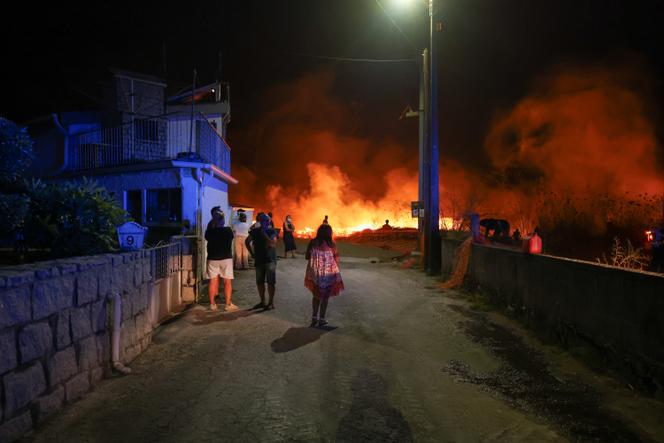


Efforts to extinguish the fires that have been ravaging northern and central Portugal since Sunday, killing seven people including four firefighters, were continuing on the morning of Thursday, September 19. More than 40 fires were still active, with at least 20 out of control, according to the civil protection website. While 2024 had been relatively calm regarding fires, with less than 10,000 hectares burned by the end of August, over 72,000 hectares of forest have been destroyed since Sunday in Portugal, according to provisional data from the European Forest Fire Information System (EFFIS) of the Copernicus Observatory. The situation is expected to worsen.
The Iberian Peninsula has all the right ingredients for a small spark to trigger a devastating fire: Strong winds, with gusts of 70 kilometers per hour, temperatures still high for late summer, exceeding 30ºC, and very low humidity, below 20%, and even as low as 10% in some areas.
This dangerous cocktail, familiar to meteorologists, led the government to declare a "state of alert" starting on Sunday. This was extended until Thursday evening. Several villages have been placed under quarantine and hundreds of residents have been evacuated. Following an extraordinary Council of Ministers meeting convened on Tuesday evening, a "state of calamity" has been declared in the municipalities affected by the fires. This measure is intended to speed up aid for victims and the rebuilding of homes and businesses destroyed by the flames.
"We know that there are natural phenomena and circumstances of negligence that facilitate the outbreak of forest fires, but there are too many coincidences," said Prime Minister Luis Montenegro (Social Democratic Party, PSD, center right), stating his intention to "prosecute the offenders responsible for these atrocities." Seven people have been arrested since Sunday, in connection with a number of fires that may have been deliberately started.
The Aveiro region in the north of the country – in particular the municipalities of Arouca, Agueda, Albergaria-a-Velha and Sever do Vouga – has undoubtedly been the hardest hit by the fires, which are also affecting the Porto, Viseu, Tamega and Coimbra regions. In recent days, images of houses engulfed in flames and neighbors trying to put them out with garden hoses or small fire extinguishers, as well as the endless traffic jams of people trying to flee, beneath an ash-filled sky, have brought back memories of the 2017 tragedy. In June of that year, the Pedrogao Grande forest fires, the deadliest ever recorded, claimed over 60 lives in just a few days.
You have 49.72% of this article left to read. The rest is for subscribers only.
